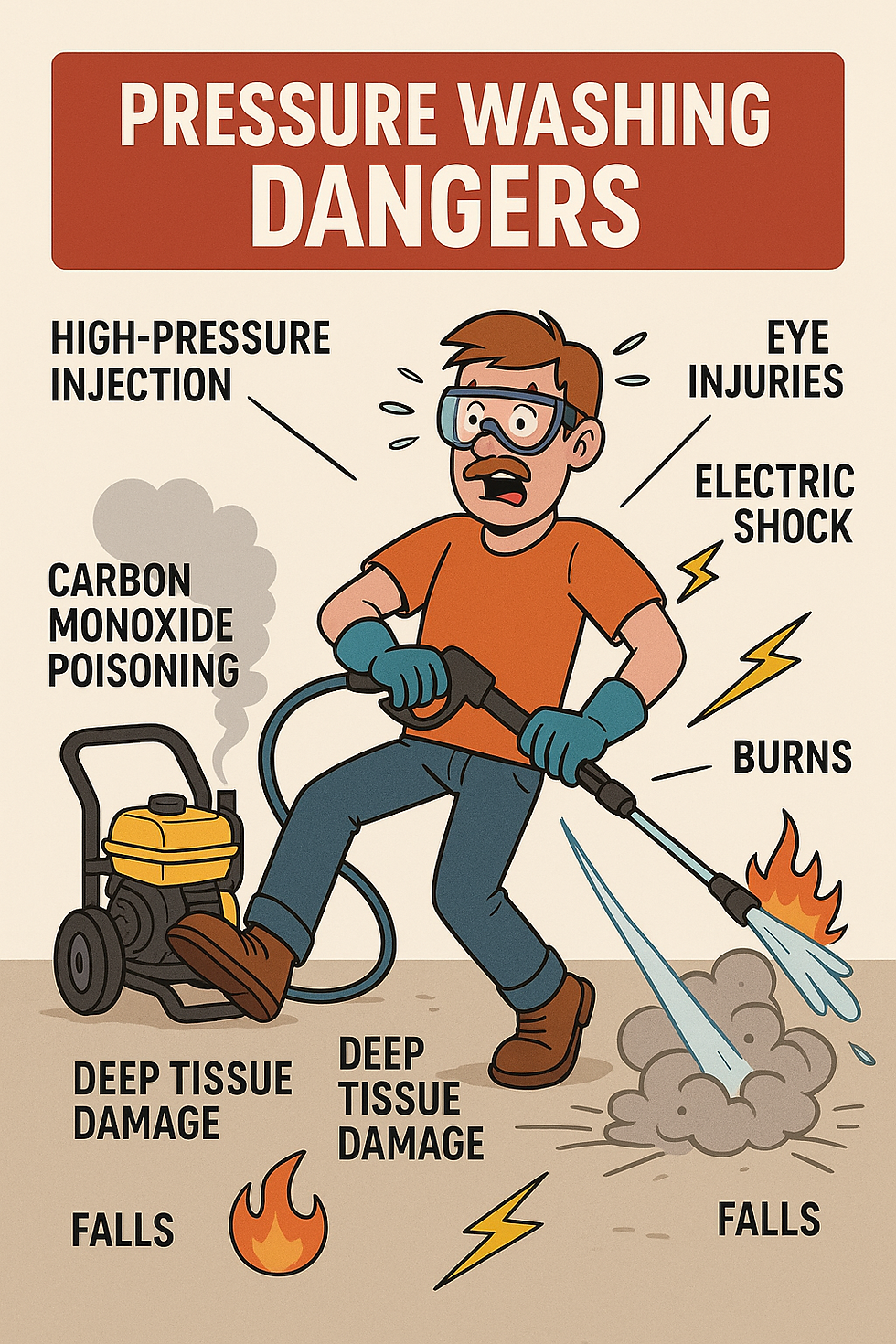10 Common Mistakes to Avoid When Resanding Pavers: How to Deliver Cleaner, Longer-Lasting Results with Every Install.
- Trudi Weickum

- Jul 19, 2025
- 3 min read

Paver restoration is one of the most profitable services you can offer — but it’s also one of the most commonly botched.
I’ve seen too many patios and driveways that looked great on Day 1 and were falling apart by Day 30. The culprit? Poor prep, wrong materials, or shortcuts taken during resanding.
If you want your work to last (and your reputation to grow), you’ve got to dial in your process.
Here are the 10 most common mistakes I see contractors make when resanding pavers — and how to avoid them.
1. Inadequate Compaction = A Shifting Foundation
Your job starts before the first paver is even laid.
If the base underneath isn’t compacted properly, you’re asking for dips, waves, and trip hazards.
🔧 Pro Tip:
Use a steel tamper for small areas, or rent a gas-powered plate compactor for patios and walkways. Compact in layers to ensure a firm, level base.
2. Using the Wrong Base Material
I don’t care how tempting it is — never lay pavers on dirt.
Dirt shrinks, shifts, and holds moisture. That leads to unstable footing, paver movement, and drainage issues.
💡 Use crushed stone or paver base mix for optimal support and drainage.
3. Skipping the Slope
Pavers may look flat, but they should never be level.
You need a slight slope — typically 1/8" per foot — to guide water away from the structure and prevent pooling.
📏 No slope = no drainage = early failure.
4. Using the Wrong Type of Sand
Regular play sand doesn’t cut it.
🛑 It washes out easily
🛑 Encourages weed growth
🛑 Won’t lock in properly
You need a solid sand 20/30 blend works perfectly.
5. Not Removing Old Joint Sand
You can’t just throw new sand on top of the old and call it a day.
Old sand may be contaminated with:
Mold
Organic debris
Uneven compaction
🧹 Vacuum or power wash the joints out first, let them dry, and only then install new polymeric sand.
6. Applying Sand to Damp Pavers
This is one of the biggest mistakes I see.
Polymeric sand is moisture-sensitive.
Apply it to wet or damp joints, and it will clump, haze, or fail to bond properly.
☀️ Make sure the pavers and joints are completely dry before installation and activation.
7. Using Too Much Sand
More sand ≠ better results.
A thick, loose layer creates:
Surface waves
Poor compaction
A weak finish
⛔ Don’t overfill. Sweep excess off the surface before you mist it.
8. Ignoring Drainage
Bad drainage will ruin even the most beautiful paver job.
Make sure:
Water runs away from the home
Gutters don’t dump near the patio
French drains or catch basins are in place if needed
💧 If water can’t get out, it’ll find its way under — and push everything up from below.
9. Not Using the Right Tools
Sealing pavers isn’t just a spray-and-go operation.
You need:
A quality pump-up sprayer or electric sprayer
A backroll setup for even coverage
Time for prep and dry-down
🎯 The right tools = clean finish + longer protection.
10. Not Upselling Sealing in the First Place
This one’s a business mistake.
Every time you resand, you should be talking to the customer about sealing. It adds:
UV protection
Moisture and stain resistance
Longer life for your work
A better-looking finish
💰 Sealing isn’t just a service — it’s a profit multiplier.
The Details Are the Difference
Whether you're restoring an old patio or installing brand new pavers, your process matters. The better your prep, the better your finish. And the better your finish — the more referrals, reviews, and rebookings you’ll earn.
We go deeper into this kind of training at the Panhandle Pressure Washing Expo — with hands-on education, tool demos, and real-world tips from contractors who’ve built six- and seven-figure paver restoration businesses.
🎟️ Want to step up your restoration game and win more high-ticket jobs?
Because better work starts with better education — and that’s what we’re here to deliver.
By Trudi Weickum | Industry Educator | Panhandle Pressure Washing Expo








Comments